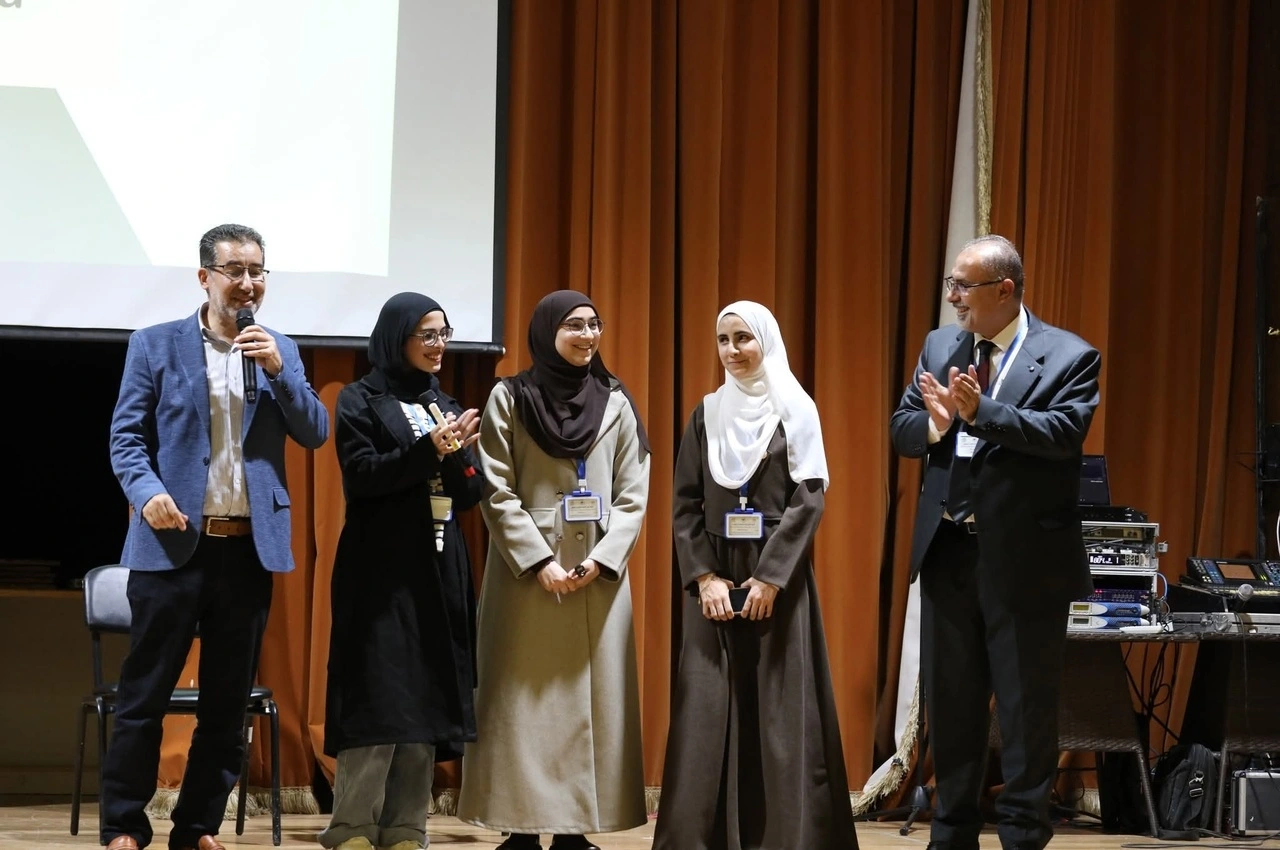


The Sixth International Olive Conference in Palestine—organized by Palestine Technical University–Kadoorie PTUK over two days with the participation of leading local and international researchers and experts—concluded with a set of strategic recommendations aimed at strengthening and advancing the Palestinian olive sector amid current climatic and environmental challenges. The conference featured high-quality scientific papers that provided significant contributions to the development of olive cultivation and industry.
Among the most prominent recommendations was the need to enhance the sustainability of olive orchards through cultivar improvement, efficient resource management, and the adoption of integrated agricultural practices to mitigate the impact of climate change on production. The conference also recommended expanding the introduction of new cultivars, particularly table-olive varieties.
The recommendations emphasized encouraging organic agriculture and sustainable farming practices to protect the environment and increase the competitiveness of Palestinian olive oil. They also called for improving the efficiency of processing by enhancing olive milling operations, reducing waste, and upgrading packaging technologies to meet the requirements of local and international markets while increasing value-added products.
The conference further stressed the importance of establishing a national center dedicated to olive research, serving as a reference for researchers and farmers. It also called for creating a comprehensive national database covering production, diseases, management, and marketing. Additional recommendations included improving marketing systems, increasing value-added production through food and cosmetic industries based on olives, and promoting school and community awareness programs to reinforce the cultural significance of the olive tree and protect ancient groves through documentation and conservation.
Participants urged that the conference outcomes be followed up with relevant public and private sector institutions and civil society organizations to ensure implementation and the development of strategic plans to strengthen the sector. They also encouraged holding the conference periodically to keep pace with scientific developments.
The second day of the conference continued with three scientific sessions.
The first session, chaired by Dr. Samer Jarrar, opened with a presentation by Daniele Zakaria USA on precision irrigation systems for olive orchards in dry and semi-dry conditions. Engineer Badr Al-Hawamdeh presented research on temperature and humidity effects on olive fruit fly activity in southern West Bank regions. Researcher Aziza Hussein followed with a study on detecting feeding traces of Philaenus spumarius using rapid stains, while researcher Wissam Atawneh discussed the diversity and spread of sucking insects in Palestinian orchards. The session included an extensive discussion on agricultural pests and management strategies.
The second session, chaired by Dr. Mohammad Jawabra, featured research by Mazen Salman on the effects of boron and agricultural practices on olive yield. Researcher Malik Salleh presented a study on safety considerations in traditional harvesting methods. Researcher Safa Hamdan discussed the environmental impact of stone quarries on water and soil quality in olive-growing areas. The session concluded with a paper by researcher Mahmoud Riheil on treating olive mill wastewater using a solar reactor and reusing it as a liquid fertilizer, sparking important discussions on sustainability and waste recycling.
The third session, chaired by Prof. Mahmoud Riheil, included a presentation by Prof. Samir Amiriyeh analyzing phenolic content in West Bank olive oils using fluorescence techniques. Researcher Samah Nibal presented on olive oil quality in Palestinian markets using spectroscopic analysis. Researcher Nawaf Abu Khalaf discussed the development of sensors to measure olive oil quality, followed by research presented by Yafa Salman, Saoudia Ishtaywi, and Roa Omar on visual indicators of oil quality. The session concluded with presentations by researcher Ali Hamdallah on the economic feasibility of environmental agriculture and researcher Mohammad Jarrar on the impact of climate change on the olive sector.
The conference concluded with a ceremony honoring participating researchers who presented their scientific work over the two days, as well as members of the scientific and organizing committees, in recognition of their contributions to the success of this national scientific event. The conference reaffirmed PTUK’s leading role in specialized scientific research and its commitment to partnerships that support the development of Palestine’s olive sector.